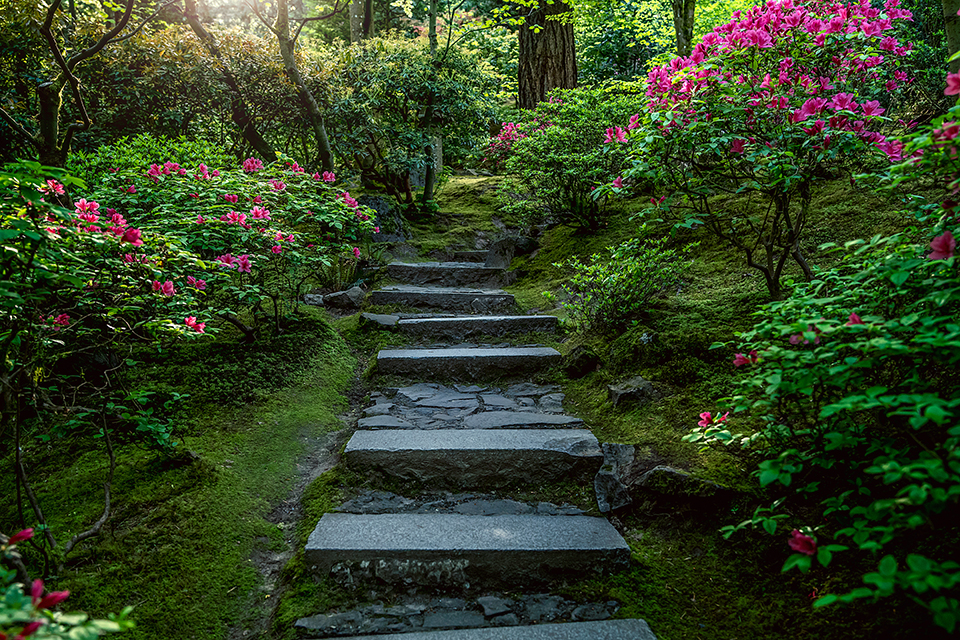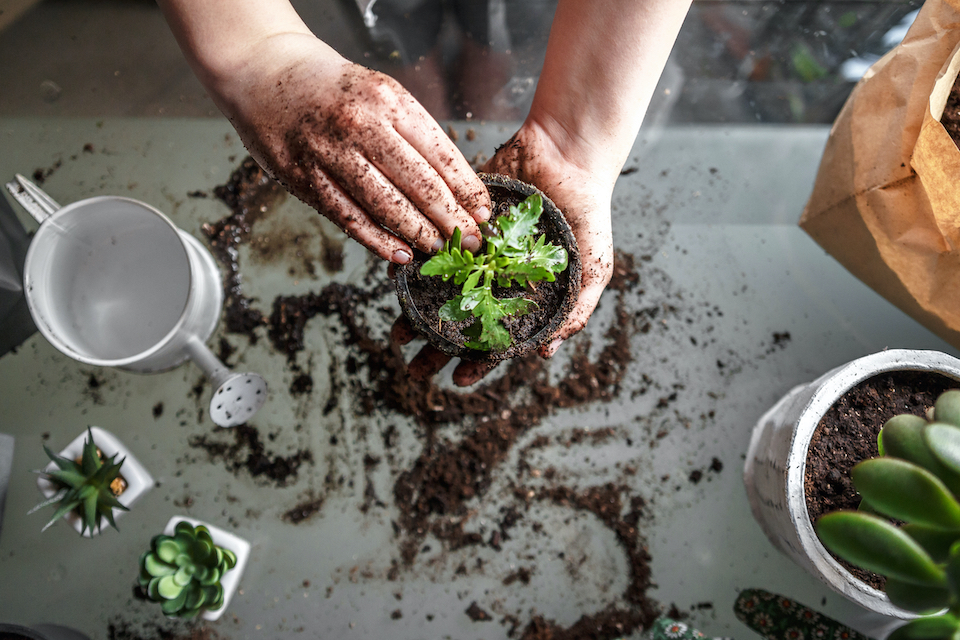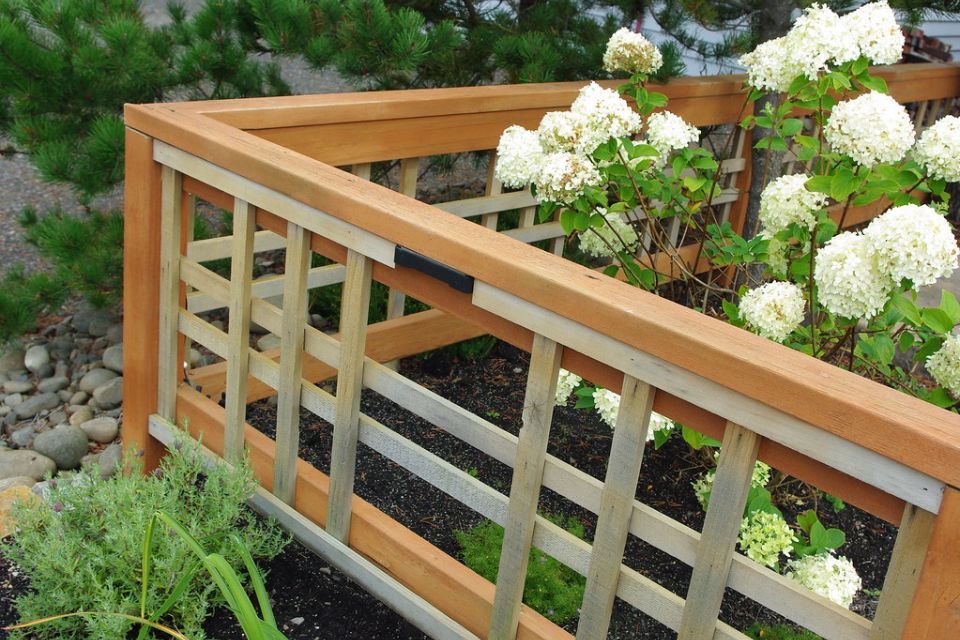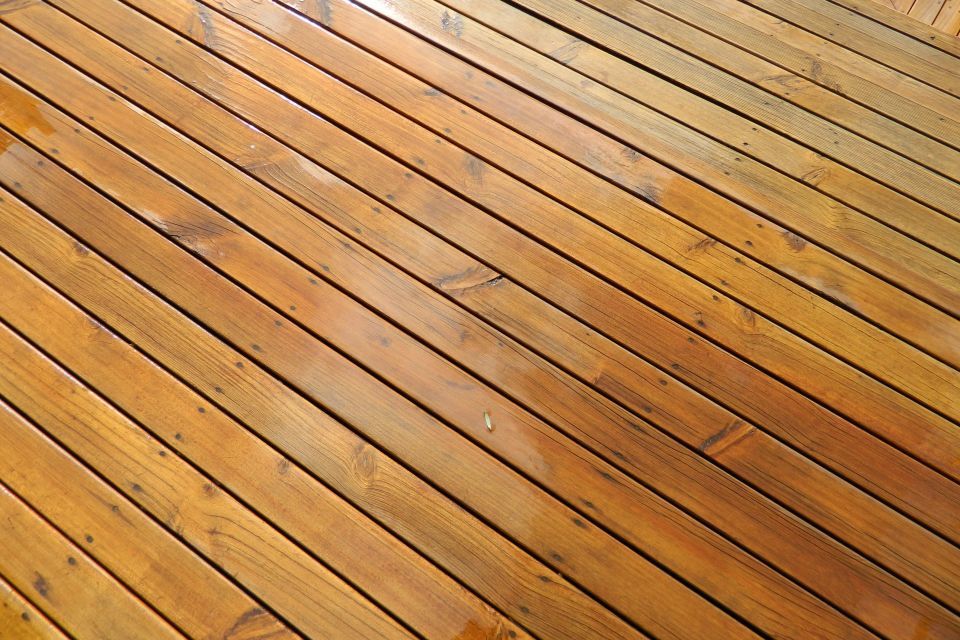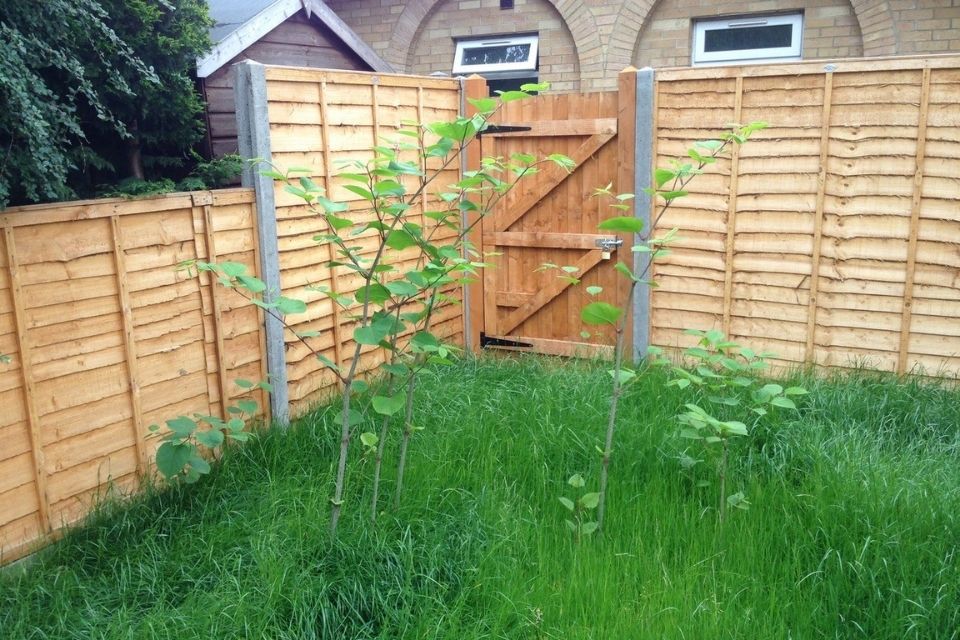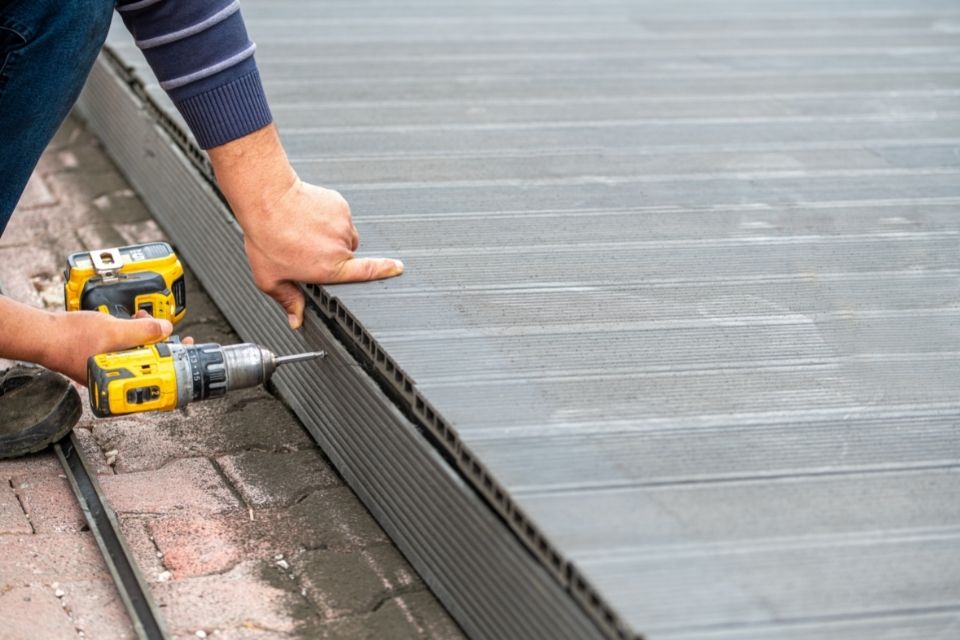How Much Does it Cost to Build Brick or Stone Steps?
Looking at the prices of brick and stone steps, let’s start by laying out the costs of having building brick steps and then explore the cost of installing stone steps.
Garden Step Prices
| Job Description | Labour Cost | Supply Cost | Total Costs |
|---|---|---|---|
| Two Brick Steps to Doorway - One Metre Wide | £150 to £200 | £120 to £210 | £270 to £410 |
| Semi-circular Brick Step to Doorway | £300 to £400 | £140 to £240 | £440 to £640 |
| Three Patio Brick Steps - Three Metres Wide | £300 to £600 | £590 to £1,010 | £890 to £1,610 |
| Four Slate Steps - One Metre Wide | £300 to £400 | £430 to £530 | £730 to £930 |
| Four Portland Stone Steps - One Metre Wide | £300 to £400 | £600 to £700 | £900 to £1,100 |
| Six Cast Stone Steps - Two Metres Wide | £520 to £700 | £890 to £1,090 | £1,410 to £1,790 |
| Six Granite Steps - Three Metres Wide | £750 to £1,000 | £1,510 to £1,710 | £2,260 to £2,710 |
- How Much Does it Cost to Build Brick or Stone Steps?
- What are the Supply Costs for Garden Steps?
- What are the Additional Costs of Installing Steps?
- Tradesmen Costs for Garden Steps Installation
- How Long Does It Take to Install Steps?
- Types of Garden Steps
- How Much Does It Cost to Remove Brick/Stone Steps?
- FAQs
- Sources
What are the Supply Costs for Garden Steps?
We’ll now move on to the supply costs or standalone/material costs brick and stone steps. These costs exclude the price of labour and any additional expenses (e.g., waste removal).
Please note that our supply cost averages include the cost of any bullnose treads, risers, infill blocks, and mortar, where applicable.
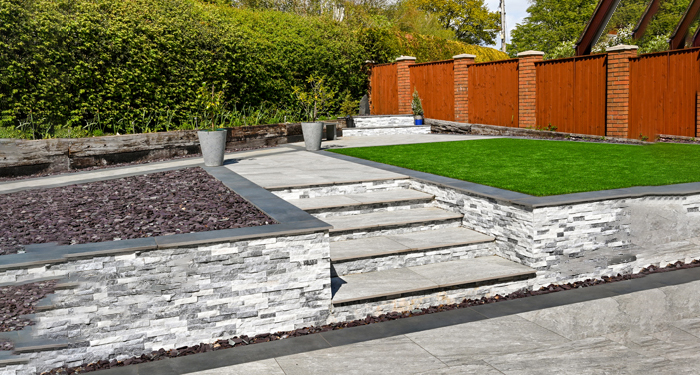
These costs are particularly useful to know if you plan to construct brick or stone steps DIY, as these prices relate to what you'd paid a supplier for the necessary materials.
However, unless you have the right tools and equipment, you'd also need to factor those into your overall bill.
Further, while you’re likely to save money overall installing brick/stone steps yourself, you should only do so if you have the right skills and knowledge and understand all the necessary safety precautions that need to be taken.
The average cost of supplies for brick and stone steps is as follows…
Brick steps:
- 100 brick steps (Two steps to the doorway with one metre in width): £120 to £210
- 130 brick steps (Semi-circular step to the doorway): £140 to £240
- 540 brick steps (Three patio steps with three metres of width): £590 to £1,010
Stone steps:
- Four slate steps (one metre wide): £430 to £530
- Four Portland stone steps (one metre wide): £600 to £700
- Six cast stone steps (two metres wide): £890 to £1,090
- Six granite steps (three metres wide): £1,410 to £1,610
What are the Additional Costs of Installing Steps?
When having brick or stone steps constructed for your home, you might decide it’s a good time to have a few other jobs undertaken at the same time. Let’s look at some relevant examples.
Paint Exterior of House
Painting the exterior of your home is a fantastic way to give it a new lease of life. With it taking about one to two days to have the front of a house painted, this would put the overall labour cost at about £100 to £600 (it is around £100 to £300 per day).
External wall paint tends to cost between £1 and £13 per litre. Your overall cost would therefore be largely determined by the size of the wall.
New Front Door
Another way to enhance the look of the front of your house would be by having your front door replaced. These costs would differ primarily based on the type of door used.
New Driveway Cost
You could consider having a new driveway installed. On the lower end of the costs offered here, tarmac driveway installations cost around £1,200 to £5,500, whereas you'd need a budget of about £2,400 to £7,200 to install a gravel driveway or £1,500 to £7,200 to fit a resin driveway.
If you’re willing to splash out more, you could consider a concrete driveway with costs starting from £2,700 and peaking at around £14,500. In addition, it costs around £2,100 to £9,000 to have a block paving driveway installed.
Tradesmen Costs for Garden Steps Installation
Next, we'll look at the labour costs involved in constructing brick or stone steps. This excludes the cost of supplies and other expenses like waste removal.
The average labour cost of having brick or stone steps constructed stands at £150 to £200 per day. The hourly rate is about £15 to £20 per hour.
Of course, different jobs will take different times than others (we will touch more on that in the next section), so the labour costs of the examples we gave earlier ranged from as little as £150 to as high as £1,000.
The cost of labour can vary depending on factors such as ease of access and the state of the work area but, most importantly, where you live since labour rates differ across the UK.
To give you an idea of how they vary…
Labour rates are generally above average in:
- London
- Southeast England
Whereas labour rates are usually below the national average in:
- Northern England
- Scotland
- Northern Ireland
How Long Does It Take to Install Steps?
The time it takes to install brick or stone steps will depend on the nature of the construction, the number of bricks/size of the area, and the type of steps, among other factors.
However, based on the examples we priced earlier, here's how long these jobs are likely to last…
Brick steps:
- 100 brick steps (Two steps to the doorway with one metre in width): 1 day
- 130 brick steps (Semi-circular step to the doorway): 2-3 days
- 540 brick steps (Three patio steps with three metres of width): 2 days
Stone steps:
- Four slate steps (one metre wide): 2 days
- Four Portland stone steps (one metre wide): 2 days
- Six cast stone steps (two metres wide): 5 days
- Six granite steps (three metres wide): 3.5 days
Timeframes of Installing Garden Steps
| Job Description | Duration |
|---|---|
| Two Brick Steps to Doorway - One Metre Wide | 1 day |
| Semi-circular Brick Step to Doorway | 2-3 days |
| Three Patio Brick Steps - Three Metres Wide | 2 days |
| Four Slate Steps - One Metre Wide | 2 days |
| Four Portland Stone Steps - One Metre Wide | 2 days |
| Six Cast Stone Steps - Two Metres Wide | 5 days |
| Six Granite Steps - Three Metres Wide | 3.5 days |
Types of Garden Steps
There are, of course, various types of brick/stone steps that you may wish to have installed when it comes to the materials used. In this section, we'll look at these types in more detail, including a look at their pros and cons and supply costs.
Slate Steps Cost
Slate for stone steps is generally sourced from Wales and the northwest. Slate steps benefit from being slip-resistant, meaning that they are a great option for the outdoors.
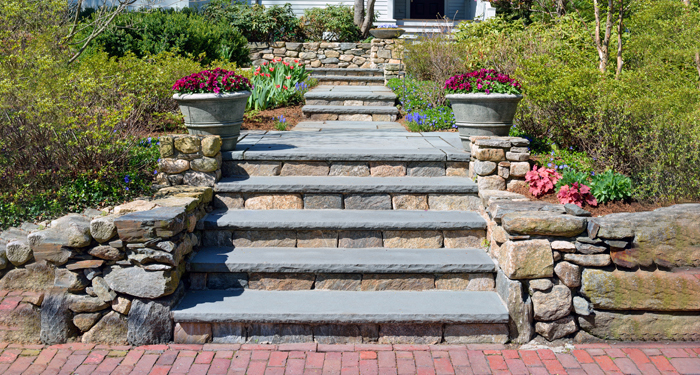
In addition, slate is a durable type of stone. Slate step threads cost about £60 per linear metre, while slate step rises are priced at approximately £40 per linear metre.
Marble Steps Cost
One fancy but expensive option is a marble. Not only are marble steps visually appealing, making for beautiful garden stone steps, but they also come with structural hardiness, and they're easy to clean.
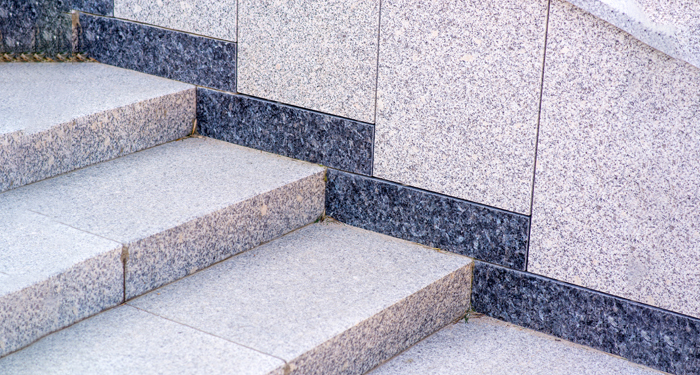
The key downside to marble steps is that they start from about £70 per linear metre for step threads or £50 per linear metre for step risers.
Pros
- Visually appealing
- Structural hardiness
- Easy to clean
Cons
- Not a cheap way of building stone steps
Granite Steps Cost
Another option is granite which has a starting price of about £45 per linear metre for step threads, while granite step risers begin at £35 per linear metre.
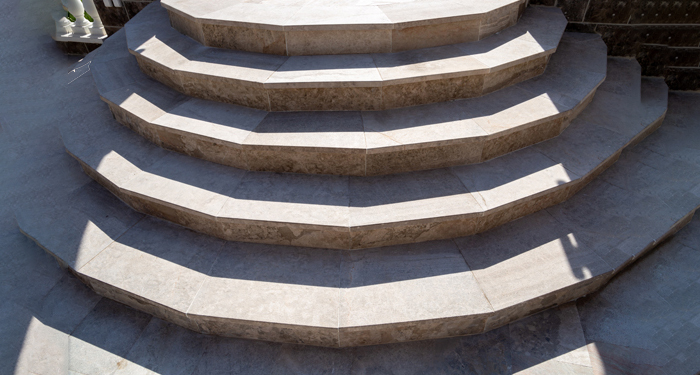
Granite steps are durable, offer a nice appearance, are straightforward to repair or seal, and they are also known for being heat-, scratch- and stain-resistant. On the other hand, due to their porosity, granite steps will need to be sealed each year (on average)
Pros
- Durable
- Nice appearance
- Resistant to heat, stains and scratches
Cons
- Porosity
Cast Stone Steps Cost
Another option is granite which has a starting price of about £45 per linear metre for step threads, while granite step risers begin at £35 per linear metre.
Granite steps are durable, offer a nice appearance, are straightforward to repair or seal, and they are also known for being heat-, scratch- and stain-resistant.
On the other hand, due to their porosity, granite steps will need to be sealed each year (on average)
Pros
- Various colours and styles on offer
- Slip-resistant
Cons
- Not generally as detailed as natural stone steps
- May look artificial
Common Brick Steps Cost
Another option is common or standard bricks. These bricks tend not to be as strong as many other types. For this reason, they are less likely to be used for exterior steps. The cost of ten common bricks is around £55 to £85, making them the least expensive choice.
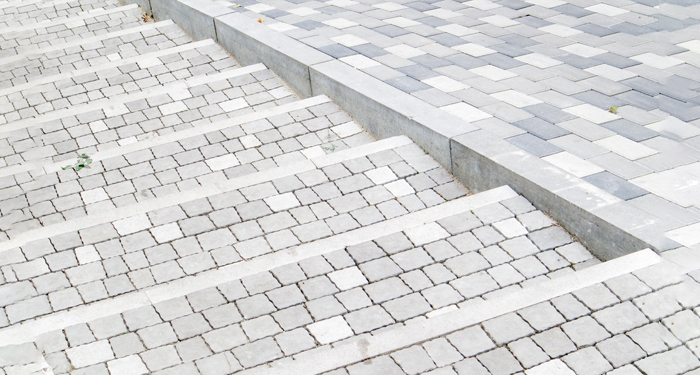
Pros
- Inexpensive
Cons
- Not well-suited to outdoor use
- Not the strongest type of bricks
Handmade Brick Steps Cost
With a cost of about £85 to £115 per 100 bricks, handmade bricks are one of the cheaper options for having brick steps constructed, although they are more costly than standard bricks. As the name tells you, these bricks are handcrafted.
Pros
- Not too expensive as a means to build garden brick steps
- Good option if you want a ‘rustic’ look
Cons
- More difficult to source than standard bricks
Other Types of Brick/Stone Steps
While we’ve touched on some of the most popular types of brick/stone steps, there are other options worth considering.
Here are some examples…
Alternative Stone Steps:
- Limestone
- Yorkstone
- Sandstone
- Portland
Alternative Brick Steps:
- Reclaimed Bricks
- Engineering
- Facing Bricks (e.g., Wirecut)
How Much Does It Cost to Remove Brick/Stone Steps?
You may one day decide to have your brick/stone steps removed. This could be simply because you want to have them replaced with new, higher-quality steps or to put something else in their place (e.g., a porch), or simply remove them without anything in their place.
You can expect to spend a few hundred pounds to have these steps removed; this would cover the cost of labour and the waste removal expenses (e.g., by hiring a skip).
Depending on the material, you should be able to dispose of brick or stone steps and the other materials that need to be thrown away with a skip or via a waste management facility. If in any doubt, contact a local skip hiring company or/and waste management facility.
FAQs
Q: Can you build brick steps without mortar?
A: Yes, it is possible in some circumstances. One way to do so is with concrete pavers, flagstones or bricks. Bricks or concrete pavers must be laid in sand on a firm and flat based.
They must also be anchored using an edging. This method is referred to as flexible paving and is relatively straightforward. Repairs are easy too.
Q: How do you build stone steps on a slope?
A: There are several steps to take when thinking about how to build brick steps.
- Measure the height of a slope from a level such that you allow for 16 inches per thread and 6-7 inches per riser:
- Dig into the slope. Do this in such a way as to extend an almost level position back around 18 inches and 36 inches in width.
- Dig four to six inches down and fill using crushed gravel. Fill right below the grade.
- Lay wide stones, filling all 18 inches of depth. Stones should not be pieced for the threat depth.
- Do not use any more than two stones across the steps 36 inches in width. If the stones were too small, they would rock, settle, slant and tip. The stones would be fitted with the rough side facing down. Dig out for any irregularities.
- Then dig back at the height of the step’s top.
- Lay the second set of stones (no more than two). Make sure you don’t establish a running joint.
- The front edges of said stones should overlap the backs of the stones you first laid down by one to two inches.
- Considering that the back edges are going to be covered, the stones should be said in a way such that no rough or uneven edges are present
- Shape the stones as necessary – it is best to start with stones that are flat and rectangular where possible.
- Now, dig out for the third step. As you did previously, lay these stones such that you avoid any running joints. Do not shorten the depth of the external threads to meet the slope. Anything under sixteen inches is difficult to work with.
Of course, how you exactly build brick steps or stone garden steps will depend on a variety of factors. The above approach is just one example that would be suitable in some cases. Always check with the manufacturer’s guidance before proceeding.
Q: What can I do to maintain brick and stone steps?
A: There are several ways you can do this. For one, you should inspect the masonry once a year (or whenever else deemed necessary).
Look out for things like water damage, plant growth, mould and mildew, and keep an eye out for bowing and bulging as well as cracking and crumbling. Issues should be addressed when quickly.
Other tips to consider are cleaning the masonry with a mild and appropriate detergent, using bleach to get rid of mould and mildew, unclogging weep holes and applying the sealant to protect the step masonry against water damage. You should also consider repointing brickwork or stone.
Q: What are Half Moon brick steps?
A: These brick steps essentially form a semi-circle or 'half-Moon' shape. Each step is rounded with the lower the step, the larger/wider they are. Each of the lower steps 'consumes' the one above to form the overall half-Moon shape.
Q: What are Indian stone steps?
A: Indian sandstone steps feature an elegant and rounded bullnose edge as well as provide a strong aesthetic appearance. These steps are available in various natural colours.

